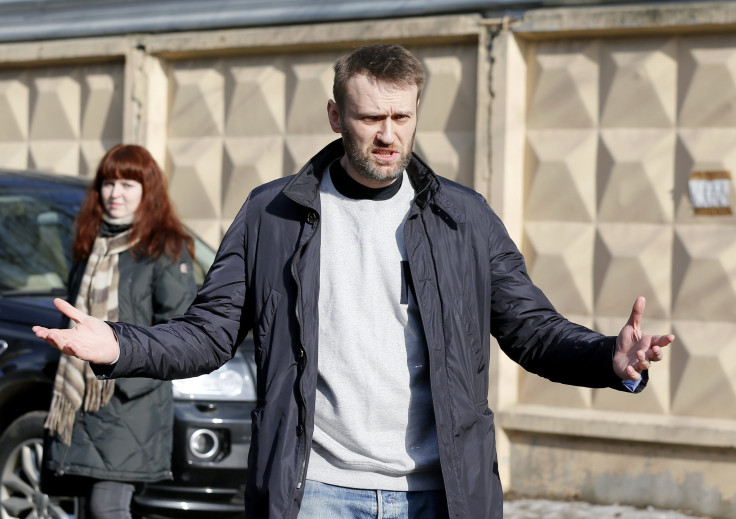Alexei Navalny, Putin And Kremlin Critic, Released After 15-Day Sentence

Russian opposition activist Alexei Navalny left a Moscow detention center on Friday, one week after fellow Kremlin critic Boris Nemtsov was shot dead in the capital. Navalny was imprisoned for 15 days after handing out leaflets in the Moscow metro promoting a protest rally planned for March 1.
The march, which Nemtsov was also involved in organizing, took the shape of a funeral procession for the slain leader, who was shot dead last Friday within sight of the Kremlin’s walls.
"Our activity won't change at all, we won't reduce our efforts, we won't step back," Navalny told reporters outside the prison on Friday, BBC reported. "That terrorist act didn't achieve its aim, it didn't frighten anyone, doesn't frighten me or my associates."
Navalny, a blogger and former candidate for Moscow mayor, was also convicted of fraud in December, after he was accused of embezzling hundreds of thousands of dollars, for which he was given a suspended sentence and placed under house arrest in late February. His brother was sentenced to three-and-a-half years in prison.
The ruling was widely condemned, with many alleging that it was politically motivated.
Navalny reportedly flouted the court’s orders several times, leaving his house to attend rallies, Deutsche Welle reported. He was arrested again at one of these rallies, and a court ruled in February that Navalny would be held for 15 days, the Associated Press reported. Navalny had requested to attend Nemtsov’s funeral on March 3, but that request was denied, TASS and Interfax reported.
Navalny became known for his role in investigating state corruption and leading anti-Putin protests in 2011 and 2012. In a separate case, in 2013, Navalny was found guilty of embezzlement and sentenced to prison, but was released the next day in the face of massive protests against the ruling. Navalny criticized that ruling as well, calling it “an obviously political order, a political trial,” The New York Times reported.
© Copyright IBTimes 2024. All rights reserved.











